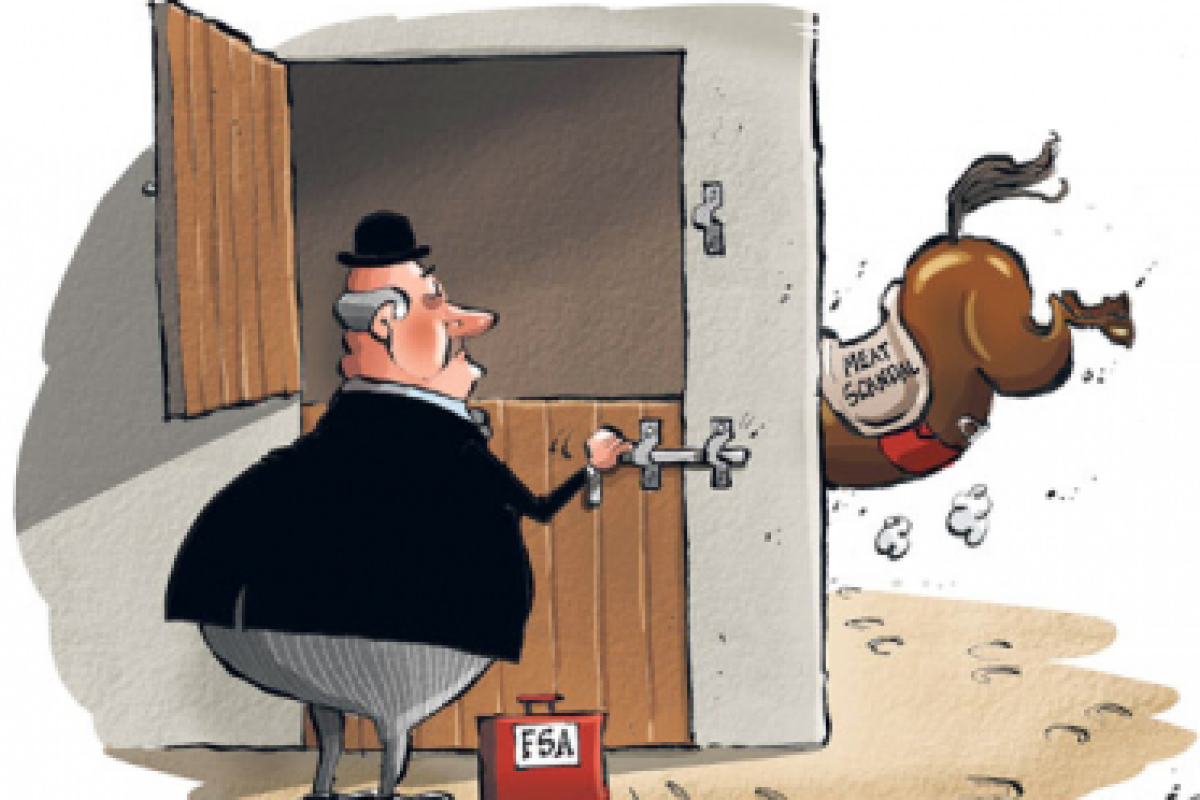With the horse meat scandal still raging, Dan Vivian looks at reputation and regulation, asking just how much autonomy a business can really have, and whether it’s actually a good idea.
Much has been reported about the horse meat scandal in the food supply chain. There’s been much angst and much anger, and many perfectly edible food products have been removed from shop shelves and presumably destroyed. Rather than exploring the rights and wrongs of the situation, I want to open out and think about the broader impact on reputation. Who is losing out most and what are the options?
Most businesses and their trade bodies will spend a lot of time and money lobbying for relaxed regulation. Regulation is often cited as a barrier to profit and growth; it is often blamed for the continued recession in Europe. But then a controversy, like the one over past few weeks, hits the headlines and people question corporate reputations and processes.
But at the same time questions are asked of the regulatory process. In fact, in many cases it is the reputation of the regulatory authority that is more exposed than that of the corporates. Why? There are a number of possible answers.
In perhaps very simplistic terms, in the case of the horse meat scandal, it might be because of those pesky foreign companies acting illegally and a failure to regulate their activities locally or a failure to prevent imports. But how are we going to ensure the stable door remains bolted in the future, and what form should the bolt take?
A confusing mosaic of standards
For many companies, responsible sourcing is now a part of the licence to operate. It is necessary because of the complexity of the global supply chain, with multiple players involved. Increasing scarcity of raw materials, and the environmental and social impact of their extraction, has created a further dimension. The complexity is not helped by the plethora of national, thematic or in-house supply chain and responsible sourcing schemes that seem to be in competition. The resulting mosaic of standards, labels and certifications is confusing to all concerned.
A bit like the stable door, the perpetual debate between regulation and deregulation swings back and forth depending on our ability to remember the last transgression. ‘Earned autonomy’ is a phrase and a concept that has recently emerged. It basically states that companies can earn a level of increased autonomy through good performance. The short-term business benefit is fewer regulatory visits, and thus autonomy is earned.
I hope that no one would argue that we should have zero regulation – that a business should be free to do exactly as it pleases, that it can push the boundaries of acceptable behaviour until something bad happens. It is equally the case that regulators can’t and shouldn’t run businesses. Finding a position between these two extremes, and perhaps as importantly rewarding good behaviour with relaxed regulation, is what most politicians and responsible businesses want.
Add to the mix third-party certification against accepted standards, and it gets even more complicated. Independent certification to standards is often, wrongly, equated with regulatory inspection. The two processes provide value and both come with a cost.
Ultimately when things go wrong we look for someone to blame. The complexity of the global economy and the supply chain, the complexity of certification and legislation, and the desire to be competitive will always make the identification of fault very difficult. In some ways, it is the very dense nature of the undergrowth that means that the regulator with their apparently simple duty becomes the most exposed. Are they not, after all, the bolt?
From the perspective of business, is earned autonomy actually a poisoned chalice? If business wants to be autonomous and work without inspection from a regulatory body, then any disasters fall very clearly at the feet of the company whose brand is exposed. So it could be argued that the complexity of global trade provides a level of security for company reputations. Earned autonomy therefore might neither secure the door nor provide suitable cover for business when the horse is flying out the door – or as recently, off the shelves.
Read more from The Vivian Partnership on their blog.
